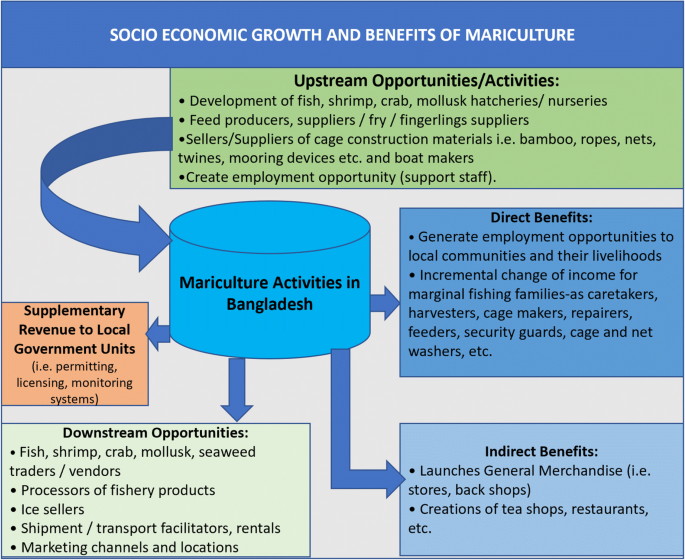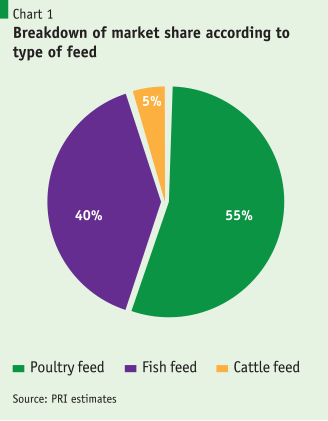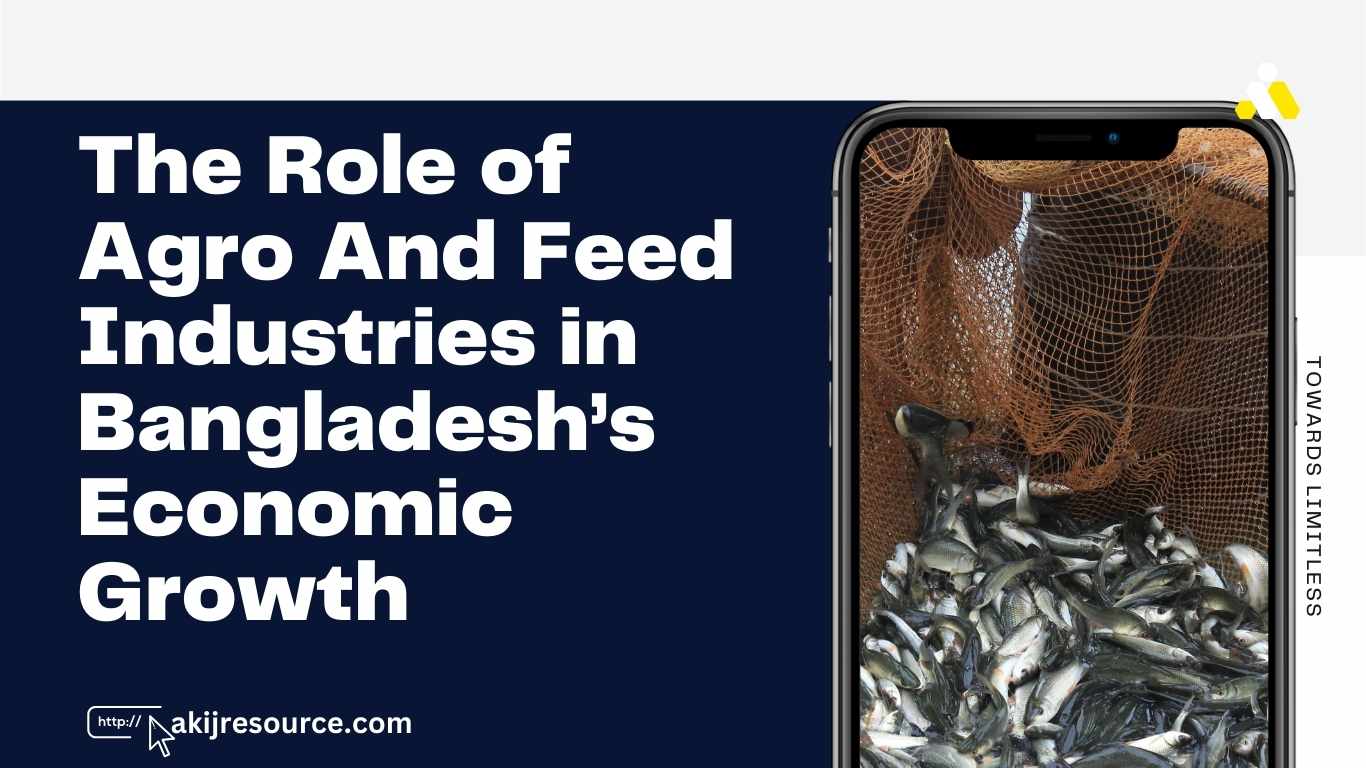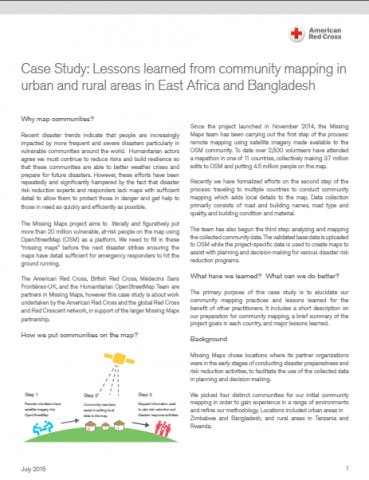Agro and feed industries are vital for Bangladesh’s economic growth. They contribute significantly to the country’s GDP.
Agriculture is the backbone of Bangladesh’s economy. With a large part of the population engaged in farming, agro and feed industries support not just food production but also animal husbandry. These industries help improve crop yields and livestock health. They create job opportunities and drive rural development.
By providing essential resources and services, they boost productivity and income levels. As a result, they play a crucial role in reducing poverty and ensuring food security. This blog will explore how these industries shape Bangladesh’s economy and their impact on sustainable development. Stay tuned to learn more about their significant contributions.

Credit: link.springer.com
Historical Background
The agro and feed industries in Bangladesh have played a crucial role in the nation’s economic growth. Understanding their historical background provides insight into their development and impact. This section delves into the early development and growth over decades of these industries.
Early Development
In the early years, agriculture was the backbone of Bangladesh’s economy. Farmers relied on traditional methods for crop production. The focus was on rice, jute, and tea. These crops were the main sources of livelihood.
Livestock farming was also prevalent. Farmers raised cattle, goats, and poultry. They used these animals for food and labor. The feed industry began to take shape to support livestock farming. Small-scale feed mills started operating. They supplied basic feed for animals.
Growth Over Decades
Over the decades, the agro and feed industries saw significant growth. The government introduced agricultural reforms. These reforms aimed at increasing productivity. Modern farming techniques were promoted. Farmers received training and support.
The feed industry also expanded. More sophisticated feed mills were established. They produced high-quality feed for livestock. This led to better animal health and higher yields.
Technological advancements played a key role. Improved irrigation systems and fertilizers boosted crop production. The introduction of high-yield crop varieties further enhanced productivity. The agro and feed industries became more efficient and competitive.
The government’s focus on these industries continued to grow. Policies and subsidies were implemented. These measures encouraged investment and innovation. The agro and feed industries became vital contributors to the economy.

Credit: lightcastlepartners.com
Economic Impact
The agro and feed industries in Bangladesh play a crucial role in economic growth. These sectors contribute significantly to the country’s GDP and provide numerous job opportunities. Understanding their economic impact helps highlight their importance.
Contribution To Gdp
The agro and feed industries contribute significantly to Bangladesh’s GDP. In recent years, these sectors have shown consistent growth. According to the Bangladesh Bureau of Statistics, agriculture contributes about 14% to the national GDP.
The feed industry also plays a vital role. It supports livestock, poultry, and fisheries, which are essential for the food supply chain. As these industries grow, they boost the overall economy.
| Sector | Contribution to GDP (%) |
|---|---|
| Agriculture | 14% |
| Feed Industry | 5% |
Employment Generation
Agro and feed industries are significant sources of employment in Bangladesh. They provide jobs to millions of people, especially in rural areas. This helps reduce poverty and improve living standards.
According to the Ministry of Agriculture, these sectors employ over 40% of the workforce. This includes farmers, laborers, and workers in processing plants.
- Farmers
- Laborers
- Processing plant workers
The feed industry also generates employment. It creates jobs in feed mills, transportation, and distribution. This industry supports many families and contributes to economic stability.
Technological Advancements
Technological advancements play a key role in the growth of agro and feed industries in Bangladesh. They help increase productivity and efficiency. Better technology means better farming techniques and feed production methods. This leads to higher yields and improved quality. These improvements boost the country’s economic growth.
Modern Farming Techniques
Modern farming techniques include the use of advanced machinery and tools. Farmers now use tractors, harvesters, and irrigation systems. These tools save time and labor. They also increase crop yields. Precision farming is another technique. It uses GPS and sensors to monitor soil conditions. This helps farmers apply the right amount of water and fertilizer. As a result, crops grow healthier and stronger.
Innovations In Feed Production
Feed production has also seen many innovations. New methods help create better-quality feed. This improves animal health and growth. Automated systems mix and distribute feed more efficiently. They ensure animals get the right nutrients. There are also new types of feed. These are designed for specific animals like poultry, cattle, and fish. These feeds enhance growth rates and productivity. All these innovations help support the agro and feed industries in Bangladesh.
Government Policies
The government of Bangladesh plays a crucial role in the growth of agro and feed industries. By implementing various policies, it ensures the sector thrives. These policies aim to boost production, ensure quality, and support farmers and businesses. Understanding these policies can help stakeholders make informed decisions and contribute to the nation’s economic growth.
Subsidies And Incentives
To promote the agro and feed industries, the government offers numerous subsidies and incentives. These include financial aid for purchasing fertilizers, seeds, and other inputs. Farmers receive grants and low-interest loans to invest in modern equipment and technology. This support reduces production costs and increases profitability.
Additionally, tax breaks and reduced import duties on machinery help businesses lower their expenses. This encourages investment and drives growth in the sector. The government also provides training programs to improve farmers’ skills and knowledge.
Regulations And Standards
Regulations and standards ensure the quality and safety of agricultural products. The government enforces strict guidelines for the use of pesticides, fertilizers, and feed additives. This protects consumers and promotes sustainable farming practices.
Certification programs help maintain high standards in the industry. Products that meet these standards receive quality marks, boosting their market value. The government also monitors and controls the import and export of agricultural goods.
Compliance with these regulations is essential for businesses to succeed. It ensures products are safe, high-quality, and competitive in both local and international markets. By adhering to these standards, the agro and feed industries contribute to the country’s economic growth.
Challenges Faced
The agro and feed industries play a key role in Bangladesh’s economic growth. These sectors face many challenges that impact their efficiency and sustainability. Let’s explore these challenges in detail.
Supply Chain Issues
Supply chain issues are a major challenge for the agro and feed industries. Farmers often struggle with transporting goods from rural areas to urban markets. Poor infrastructure makes this task even harder. Roads are often in bad condition, which slows down transportation. This affects the freshness and quality of the products.
Another issue is the lack of cold storage facilities. Perishable items like fruits and vegetables spoil quickly without proper storage. This leads to significant losses for farmers. Also, there is a lack of coordination between producers, suppliers, and retailers. This disorganization results in delays and inefficiencies in the supply chain.
Environmental Concerns
Environmental concerns are also a pressing issue for these industries. Overuse of pesticides and fertilizers harms the soil and water. This not only affects crop yields but also the health of the local population. Farmers need to adopt sustainable practices to reduce environmental damage. Educating them about organic farming methods can be beneficial.
Water scarcity is another environmental challenge. Many regions in Bangladesh face water shortages, especially during dry seasons. Farmers depend heavily on groundwater for irrigation. Overuse of groundwater leads to depletion and long-term environmental issues. Rainwater harvesting and efficient irrigation techniques can help address this problem.

Credit: policyinsightsonline.com
Future Prospects
Agro and feed industries greatly boost Bangladesh’s economic growth. They provide jobs and support the agricultural sector. This strengthens the economy.
The agro and feed industries in Bangladesh have shown steady growth. Their future looks bright. With the right strategies, these sectors can boost the country’s economy further. Let’s explore the potential for export and the role of sustainable practices.
Potential For Export
Bangladesh has the resources to expand its agro and feed exports. The global demand for quality agro products is rising. This offers a big opportunity. By improving product quality, Bangladesh can tap into new markets. Better packaging and branding can also help. Meeting international standards is key. This will build trust with foreign buyers.
Sustainable Practices
Sustainable practices can enhance the agro and feed industries. Using eco-friendly methods helps the environment. It also attracts eco-conscious consumers. Farmers can adopt crop rotation and organic farming. These practices improve soil health. Reducing chemical use is another step. It ensures safer products. Efficient water use is vital too. These methods can boost productivity. Sustainable practices can lead to long-term benefits. They can make Bangladesh a leader in green farming. “`
Frequently Asked Questions
How Do Agro Industries Impact Bangladesh’s Economy?
Agro industries contribute significantly to Bangladesh’s GDP. They provide employment, support rural development, and enhance food security. Additionally, they boost export earnings, promoting economic growth.
What Is The Role Of Feed Industries In Bangladesh?
Feed industries support the livestock and poultry sectors. They ensure a steady supply of nutritious feed, enhancing animal productivity. This, in turn, boosts meat and dairy production, contributing to the economy.
Why Are Agro Industries Vital For Rural Development?
Agro industries create job opportunities in rural areas. They support small farmers by providing markets for their produce. This leads to improved living standards and reduced poverty.
How Do Agro Industries Enhance Food Security?
Agro industries process and preserve food, reducing post-harvest losses. They ensure a consistent supply of food products, stabilizing market prices. This enhances food security for the population.
Conclusion
The agro and feed industries play a vital role in Bangladesh’s economy. They create jobs, support farmers, and boost exports. These sectors help ensure food security and improve living standards. As these industries grow, they contribute to national development. Future efforts should focus on innovation and sustainability.
This will strengthen the economy further. Embracing new technologies can also enhance productivity. The agro and feed industries are indeed key to Bangladesh’s economic progress. Their continued growth promises a bright future for the nation.






















